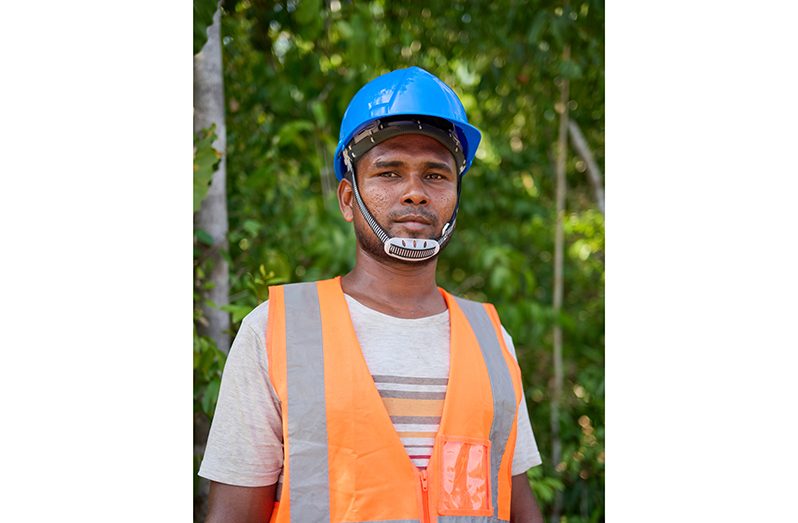How one traditional logger is embracing modern changes
THE loud and sudden sounds of falling trees are not uncommon in the rich forest surrounding the community of Siparuta. The Region 6 community has had logging as one of its economic pillars for decades. Now, with technological developments across various sectors, logging is evolving as well. In a community where a large percentage of villagers are loggers, advancements in the sector mean changes in their lives.
Sunil Wong is one of Siparuta’s loggers and has been for more than two decades since he left school at just 13. Now a master of his trade, 32-year-old Sunil has harnessed the traditional way of logging as a livelihood. However, the community’s logging industry will see drastic changes with the introduction of new machinery and skilled personnel. As this significant shift takes place, Sunil believes that not only will logging become easier, but more machines and skilled personnel will completely re-invent the logging sector in the region.

Training and development
Guyana’s Ministry of Labour and the Board of Industrial Training have made machine operation classes possible in the community. Recent intervention by both local and governing bodies has been noticeable, says Sunil, with the presence of more resources and opportunities. “So far, everything has been going fine. This is mostly due to the government’s help and support. We’ve found that we have easier access to things now, and we help each other more and more,” he said.
Sunil’s childhood years were quite different. Due to his father’s job as a skilled carpenter, his family gained access to certain opportunities and resources. This was not the case for all of the village’s people. “When I was growing up here, I didn’t find life to be too hard, you know. My parents had limited resources, but my father was a carpenter, and, because of him, I was able to reach where I am today. He helped me along the way, and it’s because of him that I’m standing here right now,” he said.
Finding his path
Growing up in Siparuta, Sunil faced his share of personal challenges after becoming a teenage father. Though still in school, he was faced with the responsibility of caring for a family. Sunil began working various jobs before he found his love for logging. ‘Ripping,’ as it is called in Siparuta, was a common job, and Sunil learned everything he knows about logging from his brother-in-law. “After I left school, I did some hunting, but later I focused on logging. That’s when I started learning how to rip lumber with a freehand chainsaw,” he said.
Over the years, Sunil has perfected the traditional way of logging, which he describes as demanding work. Describing a day’s work for a Siparuta logger, Sunil explains that a team sets out early in the morning to venture through the thick vegetation surrounding the village. The suitable trees must be found and examined before they are cut down and brought back to the community to be processed and sold. The hardest part, says Sunil, is the transportation costs. “Everything is hard about logging. But it’s hard when we have to bring the logs back and pay royalties and so on,” he said.
Overcoming challenges
Logging is considered by many to be a dangerous job, with long walks in the forest and the possibility of falling trees. Sunil admits that the job can, indeed, be dangerous, particularly for newcomers. “When I first started learning how to fall trees, I was really scared. The thought of cutting down a big tree for the first time was frightening because I didn’t know what was going to happen. But over time, I overcame that fear, and now I’m more careful with everything I do. I’ve learned a lot from those early days.”
The current training in Siparuta is just one of various initiatives slated for the region. Machine operation was of particular importance to Sunil. Over the years, he has seen very little change in the way logging has been done in the community. The addition of new skills means not only the expansion of the existing logging sector but could lead to entirely new sectors. “I’m happy with the training we’re doing now. It’s important for me because I want to pass the test so I can get a better job in the future. The work we do, especially logging, is very tough. You’re out there all day, drinking your water, dealing with the heat from the sun, and then you have to get up and do it all again the next day. But with this training, it’s helping us a lot. It’s making things simpler and more manageable,” he said.
December will see the team of Siparuta’s trainee operators take a test and become licensed operators. In a community of a few hundred, a few dozen operators will have a big impact. As Sunil stated, “If we pass these tests and get these new jobs, it will have a huge impact not only on logging but on Siparuta too.”











